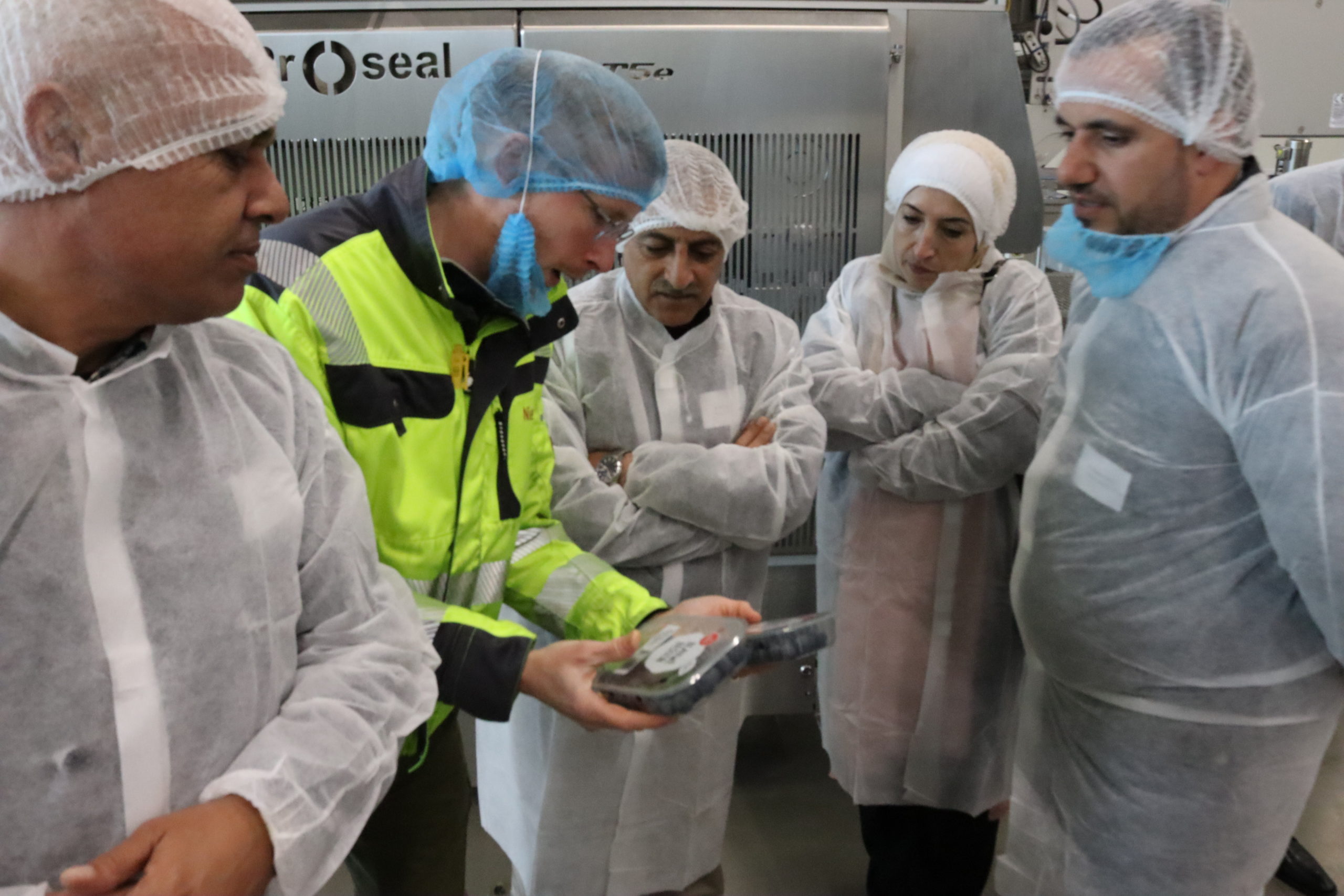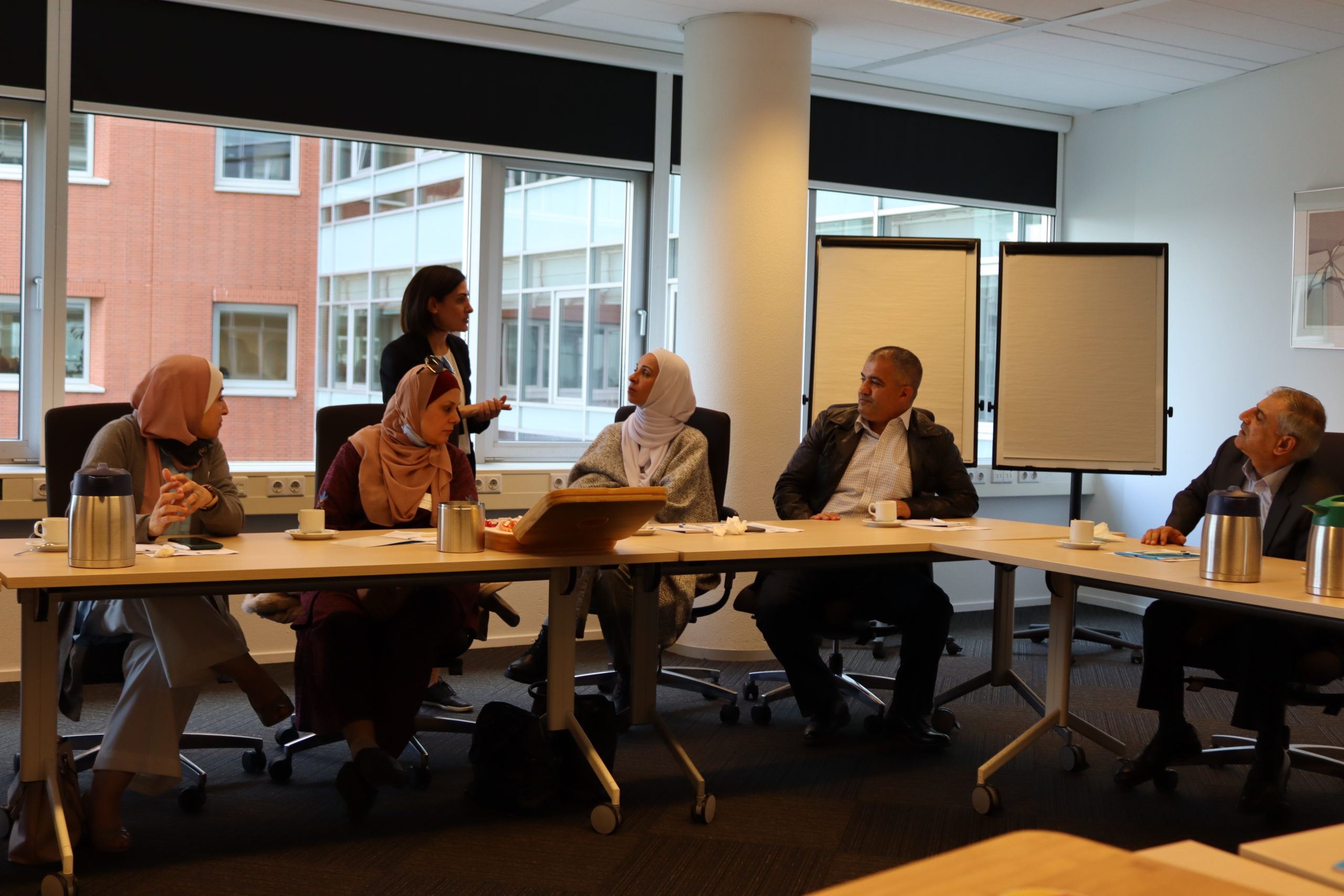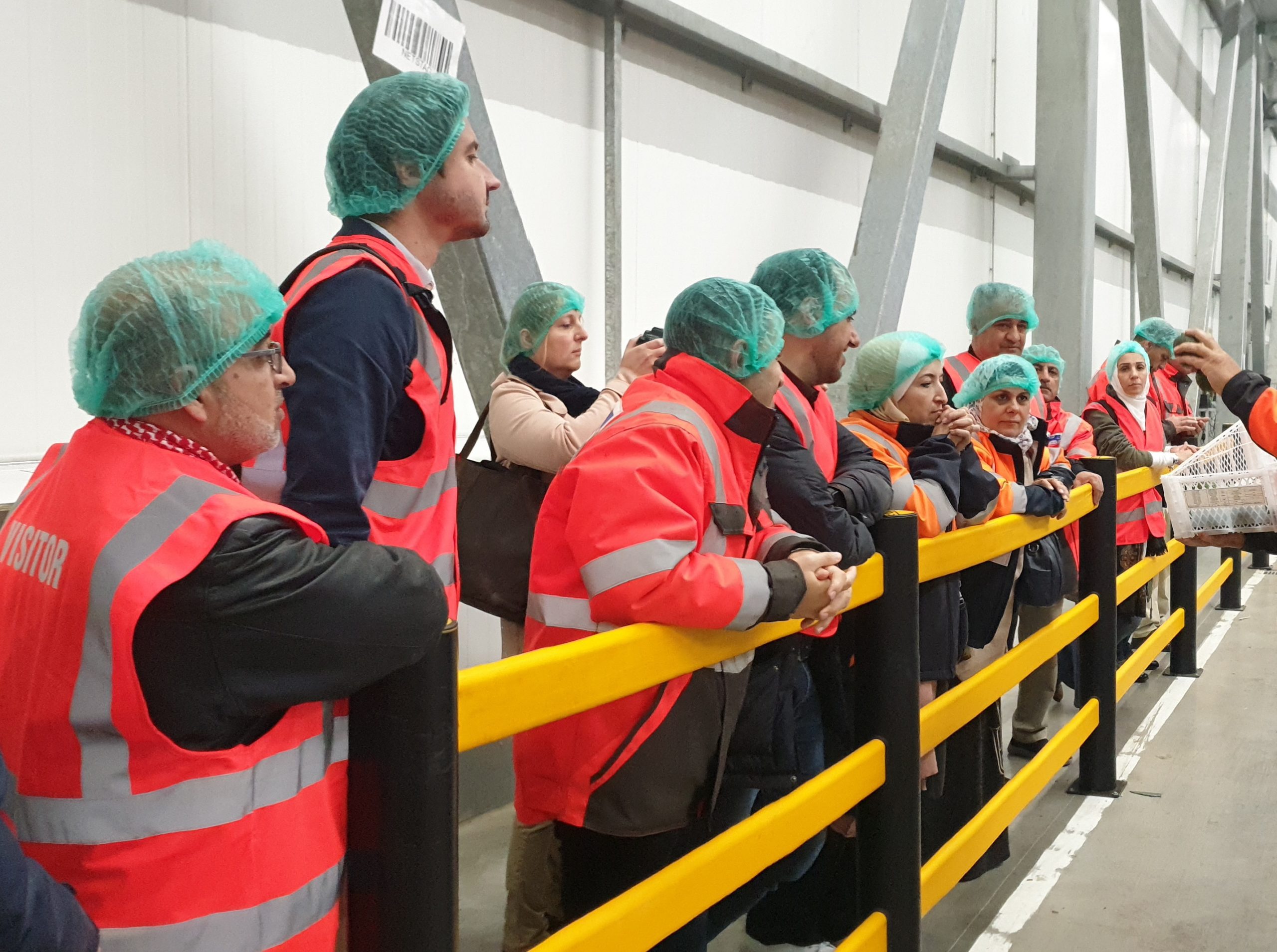As a part of an ongoing initiative to support the introduction of electronic phytosanitary certificates, or ePhytos, in Jordan, a high-level delegation recently travelled to the Netherlands to inform itself on the adoption of international best practice.
 The delegation comprising Ministry of Agriculture, Ministry of Digital Economy and Customs officials met experts from the Netherlands Food and Consumer Product Safety Authority over two days in Utrecht and Rotterdam on 23-24 May to share experiences in managing agri-food trade.
The delegation comprising Ministry of Agriculture, Ministry of Digital Economy and Customs officials met experts from the Netherlands Food and Consumer Product Safety Authority over two days in Utrecht and Rotterdam on 23-24 May to share experiences in managing agri-food trade.
The Netherlands was among the first countries to exchange ePhyto Certificates through the International Plant Protection Convention HUB and remains an enthusiastic advocate of the digitalisation process. The visit allowed the delegation to gain from these insights while sharing their own experience in implementing the system.
 The Global Alliance for Trade Facilitation (the Alliance) is working with the Jordanian government through its implementing partner, GIZ Jordan, to digitalise key border processes for agricultural trade by implementing the IPPC ePhyto Solution.
The Global Alliance for Trade Facilitation (the Alliance) is working with the Jordanian government through its implementing partner, GIZ Jordan, to digitalise key border processes for agricultural trade by implementing the IPPC ePhyto Solution.
As Jordan depends on importing most of its consumable items from abroad. Currently, traders must acquire paper certificates to confirm that their agricultural products are free of pest and disease. This increases the risk of erroneous, lost, or damaged paperwork that can take time to resolve, leaving stranded produce to spoil.
Implementing the ePhyto Solution will help replace this paper-based procedure, potentially reducing time it takes to issue certificates by more than two hours. Connecting Jordan to the IPPC Hub will allow it to exchange ePhytos quickly, accurately, and at a low cost with a growing number of participating countries, including many of its main trading partners.
 In thanking the Dutch authorities, Mr. Abdel Halim Dojan, the Assistant Secretary General on areas of Administration and Digitization said:
In thanking the Dutch authorities, Mr. Abdel Halim Dojan, the Assistant Secretary General on areas of Administration and Digitization said:
“The study tour truly inspired the participants on agri-trade practices, the importance of digitalisation in general and the exchange of electronic certificates between trading partners.”
To date, the Alliance has supported three public private sector training sessions, as part of the project.
The Alliance has valuable experience in supporting the implementation of this digitalised approach in Morocco and has other ePhyto projects underway in Colombia, Ecuador, Madagascar, Senegal, and Thailand.
Fostering a public private partnership approach in all its initiatives, the Alliance is implementing the project in partnership with the Ministry of Agriculture, the Ministry of Industry, Trade and Supply, Jordan Customs Single Window, and the local and international private sector.
